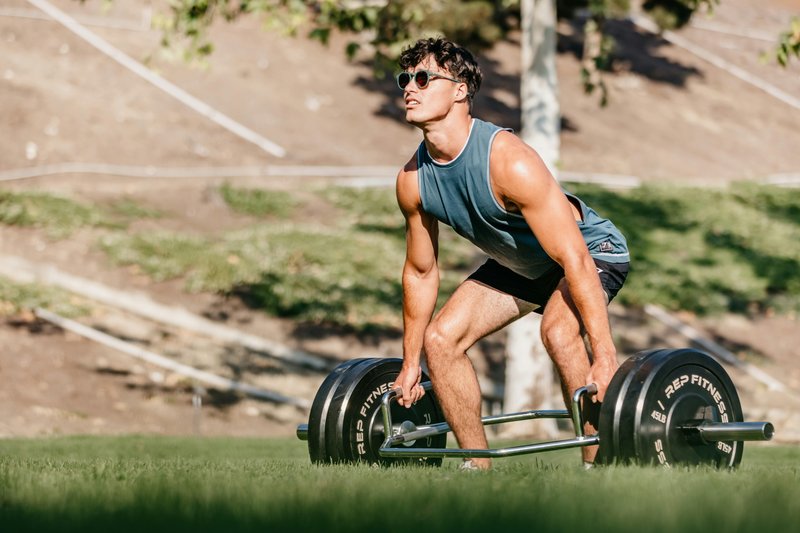Your Sleep Position Might Be Sabotaging Your Morning Wood 😴🍆
It may surprise you, but how you sleep can directly impact your sexual health. That’s right—there’s growing interest around the link between sleep position erections and overall male performance. But is this just another internet myth, or is there real science behind it?
Understanding Morning Wood: The Basics
Morning erections, or nocturnal penile tumescence (NPT), are completely normal and actually a strong indicator of good sexual health. These spontaneous erections occur during the REM stage of sleep and serve as a kind of “maintenance check” for your sexual system. If you’re consistently waking up without them, something may be off—physically or hormonally.
While factors like testosterone levels, stress, and sleep quality play major roles, few men realize that how they sleep can either support or sabotage their erection quality during the night.
The Science of Sleep Positions
Your sleep position affects everything from spinal alignment to breathing patterns and blood circulation. Since erections rely on proper blood flow, any position that restricts circulation to the pelvic region could impact the frequency or strength of nighttime erections.
Let’s break down the most common sleep positions and how they relate to male sexual function:
1. Back Sleeping (Supine)
This is often considered the ideal sleep position for overall health. Sleeping on your back allows your spine to stay aligned and doesn’t put pressure on your genitals or abdomen. For most men, this position supports healthy blood flow and may increase the likelihood of experiencing strong nocturnal erections.
2. Side Sleeping (Lateral)
Side sleeping is common and generally neutral for sexual health. However, the side you sleep on may make a difference. Some men report better erection frequency when sleeping on their left side due to improved heart circulation. Still, it varies from person to person.
3. Stomach Sleeping (Prone)
Sleeping on your stomach is the worst position for erection quality. It compresses the genitals, restricts circulation, and may even irritate nerve endings in the pelvis. If you often wake up without morning wood and you’re a stomach sleeper, this could be a major reason.
Breathing and Testosterone
Your sleep position also affects breathing quality. Poor breathing (especially from sleeping face-down) can reduce oxygen intake and increase stress on the cardiovascular system. This, in turn, can lower testosterone levels—a key hormone responsible for libido and erection strength. If you’re curious about other ways testosterone is influenced, check out our article on onions and testosterone.
Spine Alignment and Nerve Function
Another overlooked angle is the role of nerve health. Erections rely on proper nerve signaling. Poor sleeping posture—especially one that twists the spine or compresses nerves—can reduce your nervous system’s efficiency. This may lead to duller erections or even pelvic discomfort over time.
Sleep Quality Matters More Than Quantity
Many men think they’re fine as long as they’re getting 7–8 hours of sleep. But if your sleep is fragmented or you’re not entering deep REM stages, your body doesn’t get the hormonal reset it needs. Testosterone release peaks during REM sleep—miss that stage and your sexual performance may suffer. That’s why your position matters: it affects your ability to reach deep sleep.
Best Practices for Erection-Friendly Sleep
Here are some actionable steps you can take to optimize your sleep for better sexual health:
- Sleep on your back or your left side with a pillow between your knees
- Avoid tight underwear or restrictive clothing at night
- Don’t eat or drink caffeine 2–3 hours before bed
- Keep your room cool and dark to maximize melatonin production
- Try magnesium before bed to improve muscle relaxation and REM sleep
Real Experiences: What Men Say Online
Many men in sleep and health forums report noticeable improvements in morning erections after switching from stomach to back or side sleeping. Some even mention stronger nighttime arousals and better sleep quality overall. While this isn’t clinical evidence, the anecdotal consistency is worth noting.
How Sleep Position Affects Testosterone
Testosterone isn’t just about food and workouts—it’s also about rest. During uninterrupted deep sleep, your body enters its highest anabolic state. Sleep apnea, poor posture, or compressed breathing can lower your oxygen levels and interrupt this process. Curious how sex habits also impact testosterone? Explore our article on partnered vs solo sex testosterone.
Simple Changes, Powerful Results
Want to optimize your erections without pills or complicated routines? Start by changing your sleeping habits. It may seem minor, but adjusting your position can be the missing piece in your performance puzzle.
If you’re ready to take control of your sexual confidence, there’s a proven, natural approach that covers not only sleep—but size, stamina, and testosterone, too. access the full guide here.
What to Do If You Still Wake Up Without Erections
If you’ve optimized your sleep and still don’t experience regular morning wood, it may be a sign of deeper issues—such as low testosterone, high cortisol, or even anxiety from porn habits. We explore those in detail in our breakdown on porn-induced anxiety, which can silently sabotage erection quality.
Conclusion: Position Yourself for Success
Sleep is one of the most underrated factors in male sexual health. And your position at night may be silently shaping your erection strength, hormone levels, and confidence. Don’t ignore it. Adjust it. Track your changes. And commit to better rest as part of your overall enhancement strategy.
How to Track Improvements in Sleep and Erections
It’s not enough to just change your sleep position—you also need to track whether it’s making a difference. Start by journaling your morning erections for 2–4 weeks. Record the frequency, intensity, and how rested you feel upon waking.
You can also use wearable tech like Oura rings or sleep tracking apps to monitor REM cycles and breathing quality. Over time, you’ll begin to notice patterns that link your sleep habits to your sexual performance.
Does Sleeping Naked Help?
Sleeping without clothes has been shown to improve testicular temperature regulation, which is important for sperm and testosterone production. It also removes pressure from waistbands or tight fabrics that can restrict blood flow during the night.
If you sleep naked and on your back or side, you’re likely optimizing circulation and comfort, which are both vital for regular nocturnal erections. Just make sure your bedding is breathable and your room is cool enough to prevent overheating.
Nighttime Erections and Sexual Health: Why They Matter
Waking up with an erection isn’t just a sign of youth—it’s a crucial bio-indicator. Doctors often assess erectile dysfunction by asking about morning wood. If it’s consistently absent, the root issue may be physical rather than psychological.
Regular nighttime erections also support penile tissue health by keeping blood vessels elastic and oxygenated. It’s like stretching your muscles—even when you’re not awake.
Bonus Tip: Improve Your Pelvic Floor Health
Strong pelvic floor muscles are essential for erection quality, orgasm control, and urinary health. Exercises like kegels can be done anytime, including before sleep. They also work well alongside the benefits of better sleep posture.
Start with 3 sets of 10 kegels per day and slowly increase intensity. Combine this with optimal sleep positioning, and you’ll have a powerful combo for better erections without medical intervention.
Should You Use Pillows to Support Your Position?
Absolutely. Strategic pillow placement can help maintain proper alignment. Try placing a small pillow under your knees when sleeping on your back to reduce pressure on your spine. If you’re a side sleeper, put a pillow between your knees to prevent hip misalignment.
These small tweaks can prevent nerve impingement and optimize circulation to your lower body—two critical factors for healthy erections during sleep.
Interconnected Factors: Food, Sleep, and Sex
Your body doesn’t operate in silos. What you eat, how you rest, how you move—they’re all connected. A man who eats testosterone-friendly foods like onions, sleeps on his back, and maintains an active lifestyle is far more likely to perform better than someone relying solely on quick fixes.
This is why holistic male enhancement is about habits, not hacks. When you improve your sleep, you improve your erections. When you improve your erections, you boost your confidence. It’s all one system—and it starts in the bedroom.
Future-Proofing Your Erections Starts With Sleep
As you age, maintaining strong erections becomes more dependent on your lifestyle choices. While sleep may not be the sexiest topic, it is one of the most powerful levers you can control. Ignoring your sleep posture, quality, and habits now will only lead to frustration later.
Men who take control of their health early—starting with how they sleep—are setting themselves up for better performance in their 30s, 40s, and beyond. This isn’t a one-time fix. It’s a habit that pays off for life.
The Bottom Line
The link between sleep position and erections is real. Though not the only factor, your posture during rest influences blood flow, hormone production, nerve activity, and even confidence levels. Start sleeping in ways that support your goals—not sabotage them.
And if you’re looking for the next level of growth—in size, stamina, or testosterone—you don’t have to figure it out alone. There’s a natural method backed by real strategies, not empty promises. Start your evolution here with our full guide.
🛏️ Sleep Positions vs Erection Quality
| Position | Impact on Erections | Hormonal Benefit | Comfort |
|---|---|---|---|
| Back (Supine) | High | Supports testosterone during REM | Good |
| Left Side | Medium–High | May enhance circulation | Excellent |
| Right Side | Medium | Neutral effect | Good |
| Stomach (Prone) | Low | Restricts blood & nerve flow | Poor |
❓ Frequently Asked Questions
Why is morning wood a sign of hormonal health?
Morning erections reflect healthy testosterone cycles and proper REM sleep. A lack of them may indicate hormonal imbalance or stress overload.
Can changing sleep position alone restore morning erections?
It can help significantly—but pairing it with lifestyle upgrades like sleep hygiene and testosterone-supporting habits produces better, longer-lasting results.









